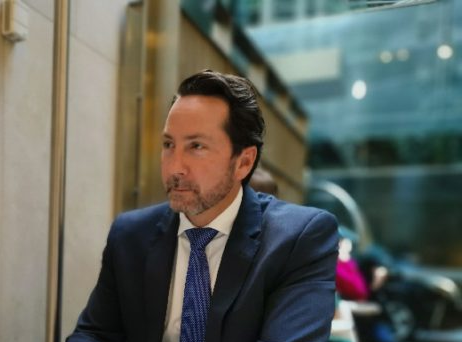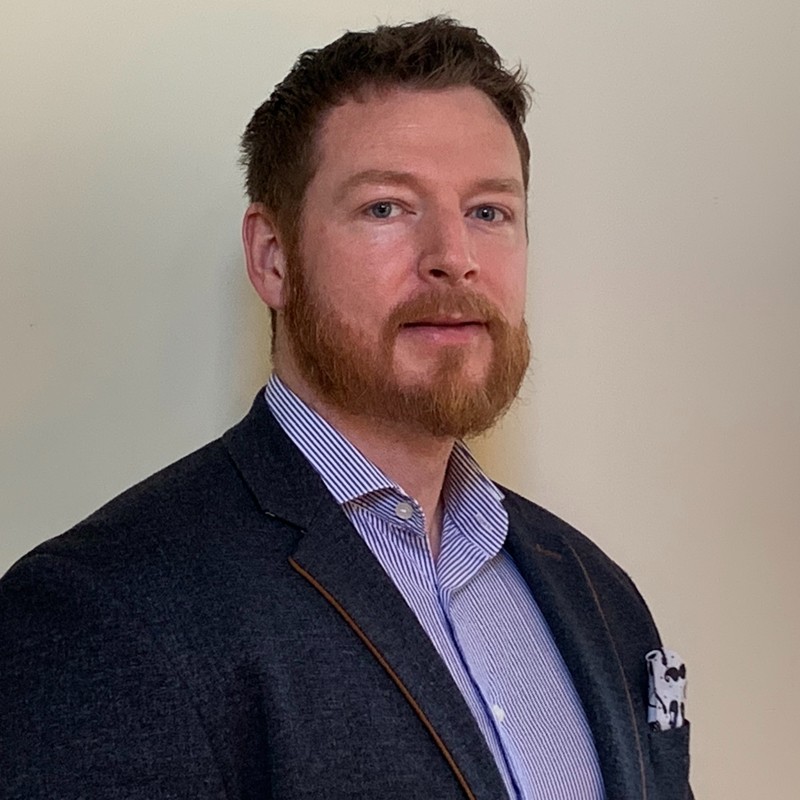Current Members

Simon has over 25 years’ experience in the Australian and international vocational and higher education sectors. He has extensive experience in business development, people management, strategic thinking, planning and execution. Through this experience, Simon has developed the foresight and business knowledge to succeed in periods of extreme growth and when economic times have been challenging, which in turn has earned him a high level of trust and respect of many long-term clients, colleagues, and industry leaders.
Simon is currently a member of The Australian Institute of Company Directors, Certified CEO of the CEO Institute, and Fellow of the Australian Institute of Management.Simon Christensen
Honorary President

A qualified Management Accountant (CIMA), with an extensive career working in industry, within several large blue-chip companies, such as Walmart and Black and Decker. I am now dedicated to helping students fulfil their potential, and I have been teaching accounting at finance at degree level for the last 10 years in the UK. I teach at both undergraduate and post graduate level and have had the pleasure of teaching students from all over the world. I specialise in teaching management accounting, which is a very applied subject, and can be seen in practice in all types of companies – commercial, public, and charitable. Management accounting is best taught using practical examples, and by me showing how techniques are used in “the real world,” drawing on my own industry experience. One of the best parts of my job is talking to and supporting students. It is great when I see a student being successful and growing in confidence. I have been nominated as an “inspirational teacher” every year since I started teaching, I think because I put students at the core of everything I do.
Beverly Rutter

Sean Kemp is a Senior Lecturer in Finance with over 10 years’ experience teaching undergraduate and postgraduate students, on programmes related to business, finance and banking. Previously he has carried out programme leadership, with responsibilities for teaching and learning in the UK and Southern Africa. Sean holds a BA(Hons) in Financial Accounting and a Masters in Financial Risk Management, his teaching and research interests include regulated products and consumer protection, global approaches to regulatory design and moving towards a digital future using the blockchain. Beyond academia Sean enjoys the English Premier League, photography and visiting new places
Sean Kemp

Drawing on a wealth of knowledge gained through lived experience working in private, public, and social sectors and, supported by a strong foundation of academic achievement; I help businesses create the changes in their strategic approach to leadership, organisational change, and management that matter most to them. From an early career within one of the most elite regiments in the British Army, I have always been passionate about people and inspired by philosophy; the fundamental nature of knowledge, reality, and existence. I am an abstract and philosophical thinker in that I am able to combine what is in front of me with complex concepts, delivering creative solutions to problems and that I am able to stay detached and thoughtful in the face of a setback or in approaching a tough situation in a level-headed manner. At present I am engaged with some exciting projects, one considers the knowledge transfer between clients and consultancy students completing MBA consultancy placements, the early findings from which were presented at the British Academy of Management 2021 Teaching & Learning Conference. Another involves working closely with the education and physical education departments at HM Prison Bristol to develop and implement a programme for young adult residents focused on choice and change, with a view to collaborating with the Duke of Edinburgh Awards Scheme. These projects are running concurrently with an exploratory study into a new and unique area of organisational leadership with the Bristol Business School and the University of the West of England where I am an Associate Lecturer and Researcher.
Roger Morrad

I have a track record of inspiring students in the classroom and working with them as a group and individuals, using a variety of teaching methods. I have a 100% pass rate in my CIM teaching (at professional postgraduate level and supervising dissertations) and my HND classes too performed particularly well, with the KPIs in early retention, retention and achievement very high both when I was course leader and running a department. The student experience is key for me and I enjoy attending events and conferences with students and doing what is required to help them out. My LinkedIn profile includes many recommendations from former students, many of whom now hold high profile positions particularly in marketing in the UK and throughout the world.
John Heuston

Dr Breno Nunes is currently Senior Lecturer in Sustainable Operations Management at Aston Business School, and the deputy-director of the research centre for Circular Economy and Advanced Sustainability. Outside Aston University. he is also Vice President of Education Research and Publications for The International Association for management of Technology. Breno's research is widely cited and has already been published In peer-reviewed journals such as Technological Forecasting and Social Change, Journal of Cleaner Production Production Planning & Control Technology Analysis & Strategic Management Journal of Manufacturing Technology Management Benchmarking: An International Journal and Project Management Journal. My forthcoming took 'Sustainable Operations Management Key practices and Cases' hi be published by Routledge.
Dr. Breno Nunes

Experienced CMO – using insight and data to ensure the customer is at the heart of everything they do. Marketing, Sales, and Strategy development and execution.
His background includes a combination of consultancy and interim/permanent roles, the common ground being that I’m usually helping businesses by:
► Defining and executing their marketing strategy to deliver repeatable, sustainable success.
► Connecting them with the right customers at the right time to drive growth.
► Identifying opportunities to improve their operations, increasing efficiency and profitability.
► Identifying and responding to evolving buying patterns, cascading critical behaviours company-wide.
Whilst Marketing is at the heart of what Martin does, he has a much broader skill-set as he’s been fortunate to work in both SMEs and large corporate environments. This means although he’s able to take a “big picture” view of a business, he’s still good with the minutiae as well.
Martin Cox

Peter Bluff spent over thirty-five years in the oil industry. After starting in LPG shipping, Peter moved on to LPG trading and then LPG broking before finishing his career broking Naphtha derivatives. He has worked for both large multi-national and small private companies in London, Paris and Geneva and managed desks, teams, and offices. He has travelled extensively representing his employers at industry conferences and his clients at negotiations.
Peter now spends his time lecturing at IFP Energies Nouvelles and other French business schools, teaching English to executives and at business schools, and when time permits, indulging his other passions of sailing, painting, and sculpting.Peter Bluff

Digital Transformation Consultant at EUREKA Outsourced Solutions
Digital Marketing Consultant, Senior Lecturer Digital Marketing, Senior Lecturer and Program Director for MSc Digital Marketing and Analytics, Program Director MSc Digital Marketing and AnalyticsGabriella Kereszturi

Change-Agile Business Coach and Startup Advisor, with extensive experience in pitching, business modelling, marketing strategies and copyright, enabling my teams to respond to changes in the business environment by seizing opportunities, including dismissing old business models and developing new ways of doing business. I balance my career between Industry and Academia: I am an Associate Teaching Fellow and Senior Lecturer, currently teaching entrepreneurship and strategy to undergraduate, postgraduate and PhD students. My biggest passion is building new 'things' and take them to market! I am involved on a daily basis with building new companies, new products and services, new degrees, new modules.
Yannis Iliopoulos

A Dual-Professional working between Lecturing Business to Higher Education Students and as an in-sector manager for Everyone Active, a private sector sport and leisure business. BA(Hons), PGCE, MBA
Daniel Stephenson
Functions and responsibilities
The Ethics Board at AIBM (American Institute of Business Management) plays a critical role in ensuring that the institute maintains the highest ethical standards in all aspects of its operations. Here are the functions and responsibilities of the AIBM Ethics Board:
1. Policy Development:
- Develop, review, and update ethical guidelines, policies, and procedures for faculty, staff, students, and stakeholders.
- Ensure that all institute activities, programs, and initiatives adhere to established ethical standards and principles.
2. Ethics Education and Training:
- Provide ethics education and training programs for faculty, staff, students, and other stakeholders to promote awareness and understanding of ethical issues and best practices.
- Develop and deliver training modules, workshops, and seminars on topics such as academic integrity, professional conduct, conflict of interest, and responsible research practices.
3. Ethics Oversight and Compliance:
- Oversee compliance with ethical standards, regulations, and codes of conduct within the institute.
- Review and investigate allegations of ethical misconduct, including plagiarism, fraud, academic dishonesty, and other violations of ethical standards.
- Establish procedures for reporting and addressing ethical concerns, including mechanisms for confidential reporting and whistleblower protection.
4. Research Ethics:
- Review research proposals to ensure compliance with ethical principles, regulatory requirements, and institutional policies.
- Provide guidance and support to researchers on issues such as informed consent, privacy protection, data management, and conflicts of interest.
- Monitor ongoing research projects to ensure continued adherence to ethical standards and guidelines.
5. Conflict Resolution:
- Mediate conflicts and disputes related to ethical issues, ensuring fair and impartial resolution.
- Provide guidance and support to individuals and groups involved in ethical dilemmas, helping them navigate complex ethical decisions and find mutually acceptable solutions.
6. Policy Advocacy and Review:
- Advocate for the adoption of ethical standards and best practices within the institute and the broader community.
- Review existing policies and procedures to identify areas for improvement and ensure alignment with evolving ethical standards and regulatory requirements.
7. Advisory Role:
- Serve as a resource and advisor to institute leadership, faculty, staff, students, and other stakeholders on ethical issues and concerns.
- Provide guidance and recommendations on ethical decision-making, risk management, and institutional governance.
8. Continuous Improvement:
- Regularly review and evaluate the effectiveness of the Ethics Board’s policies, procedures, and initiatives.
- Identify opportunities for continuous improvement and enhancement of the institute’s ethical culture, practices, and governance.
9. Public Engagement and Transparency:
- Engage with the public, media, and other stakeholders to promote transparency, accountability, and public trust in the institute’s ethical standards and practices.
- Communicate regularly with stakeholders about the Ethics Board’s activities, decisions, and recommendations.
10. Collaboration and Partnerships:
- Collaborate with other internal and external stakeholders, including regulatory agencies, professional organizations, and peer institutions, to promote ethical behavior and best practices.
- Establish partnerships and collaborations to enhance the institute’s capacity to address ethical challenges and promote a culture of integrity and responsibility.
The Ethics Board at AIBM plays a crucial role in upholding the institute’s commitment to ethical conduct, integrity, and accountability. By developing and enforcing ethical standards, providing education and training, and fostering a culture of transparency and responsibility, the Ethics Board helps to ensure that AIBM maintains the highest ethical standards in all aspects of its operations.
Appointment Process Of AAB at AIBM
- Nomination:
- The AIBM executive leadership team and existing members of the Ethics Board identify potential candidates for the board based on their expertise, experience, and commitment to ethical principles.
- Invitation:
- Selected candidates are formally invited to join the AIBM Ethics Board. The invitation includes information about the board’s mission, responsibilities, and expectations regarding ethical conduct and integrity.
- Acceptance:
- Candidates who accept the invitation to join the AIBM Ethics Board confirm their commitment to uphold ethical standards and actively participate in board meetings, activities, and initiatives.
- Orientation:
- New board members participate in an orientation session to familiarize themselves with the institute’s ethical guidelines, policies, and procedures.
- They receive an overview of the Ethics Board’s role, responsibilities, operating procedures, and meeting schedule.
- Formal Appointment:
- Upon acceptance of the invitation and completion of the orientation session, new board members are formally appointed to the AIBM Ethics Board by the institute’s executive leadership team.
- Term of Appointment:
- Board members are typically appointed for a specific term, such as two or three years, with the possibility of renewal for additional terms.
- The institute’s bylaws or governance policies may specify the length of board member terms and the process for reappointment.
- Diversity and Representation:
- The appointment process prioritizes diversity and representation to ensure that the AIBM Ethics Board reflects a wide range of perspectives, backgrounds, and expertise.
- Efforts are made to include representatives from different sectors of the business community, academia, government, and non-profit organizations.
- Ongoing Recruitment:
- The executive leadership team and existing Ethics Board members continuously identify and recruit new candidates for the board to fill vacancies and maintain board effectiveness.
- Recruitment efforts focus on identifying individuals with diverse backgrounds, expertise, and experience who are committed to upholding ethical standards and principles.
- Performance Evaluation:
- Regular performance evaluations are conducted to assess the effectiveness of Ethics Board members in fulfilling their responsibilities.
- Board members are evaluated based on their adherence to ethical standards, participation in board activities, and contributions to ethical policy development and enforcement.
- Continuous Improvement:
- The appointment process is periodically reviewed and revised to ensure that it remains effective, transparent, and aligned with the institute’s ethical standards and objectives.
- Feedback from board members, institute leadership, and other stakeholders is solicited to identify areas for improvement and refinement in the appointment process and board operations.
The appointment process of the AIBM Ethics Board is designed to attract and retain qualified individuals who can provide valuable guidance, expertise, and oversight to ensure that the institute maintains the highest ethical standards in all aspects of its operations. By prioritizing diversity, representation, and ongoing recruitment, the board ensures that it remains responsive to the evolving ethical challenges and responsibilities facing the institute and its stakeholders.
